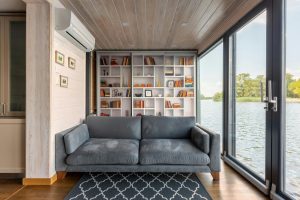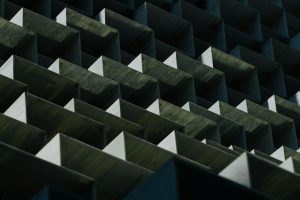The Impact of Technology on Sleep Quality and Solutions
In today’s digital age, technology has become an integral part of our daily lives. We rely on our smartphones, laptops, and tablets for everything from communication and information to entertainment and work. However, the increased use of technology has had a significant impact on our sleep quality. With constant access to screens and the constant stimulation they provide, it’s no wonder that more and more people are struggling with getting a good night’s sleep. In this article, we will explore the impact of technology on sleep quality and provide some effective solutions to combat it.
The Negative Effects of Technology on Sleep Quality
Blue Light Disruption
One of the main reasons technology can detrimentally affect our sleep is due to its blue light emissions. Blue light is a type of high-energy visible light that is emitted by electronic devices such as smartphones, laptops, and TVs. This light mimics natural sunlight and can suppress the production of melatonin, a hormone that helps regulate our sleep-wake cycle. Exposure to blue light in the evening can make it more difficult for us to fall asleep and stay asleep, leading to sleep disruption and poor sleep quality.
Increased Mental Stimulation
The constant use of technology also has a significant impact on our mental stimulation. A study conducted by the National Sleep Foundation found that 95% of people use some type of electronic device within an hour before going to bed. Whether it is browsing social media, playing games, or watching TV shows, the constant mental stimulation from technology can make it challenging to relax and fall asleep. Our brains need time to wind down and prepare for sleep, and being constantly engaged with technology can make this process more difficult.
Sleep Disruptions from Notifications
Another way technology can negatively affect our sleep is through constant notifications and alerts. With smartphones always at our fingertips, it’s easy to be tempted to check our devices throughout the night for new emails, messages, or social media updates. This constant disruption can interrupt our sleep and leave us feeling more tired and less rested in the morning. Additionally, the sound of notifications can be enough to wake us up from a deep sleep, further disrupting our sleep quality.
Solutions to Improve Sleep Quality in the Age of Technology
Limit Screen Time Before Bed
To combat the negative effects of blue light and mental stimulation, it is recommended to limit screen time before bed. Experts suggest avoiding the use of electronic devices at least an hour before bedtime. Instead, opt for more relaxing activities such as reading a book, meditation, or taking a warm bath. This will help your brain to slow down and prepare for sleep naturally.
Use Blue Light Filters
If avoiding technology before bedtime is not possible, there are several ways to reduce the impact of blue light on your sleep. Many devices and apps now come with built-in blue light filters or “night mode” settings. These filters reduce the amount of blue light emitted by the screen, making it easier on the eyes and less likely to disrupt your sleep. Additionally, there are blue light filter glasses available for purchase, which can be worn while using electronic devices in the evening.
Disable Notifications
To avoid the constant disruption of notifications, it’s crucial to turn them off during the night. Most smartphones have a “do not disturb” mode, which can be scheduled to turn on at a specific time. This will silence all notifications and allow for a more peaceful and uninterrupted sleep. If turning off notifications completely is not feasible, consider disabling sound or vibration alerts, so they do not wake you up from a deep sleep.
Create a Technology-Free Bedroom
Another effective solution is to keep technology out of the bedroom altogether. This means avoiding the use of electronic devices in bed and charging them in a different room. By creating a technology-free bedroom, you can associate your bedroom with relaxation and sleep, rather than stimulation and work.
Conclusion
Technology has undoubtedly made our lives more convenient and connected, but it has also had a significant impact on our sleep quality. The blue light emissions, mental stimulation, and constant notifications can all disrupt our sleep and make it more difficult to get a good night’s rest. By implementing simple solutions such as limiting screen time before bed and creating a technology-free bedroom, we can combat the negative effects of technology on our sleep and improve our overall well-being.





